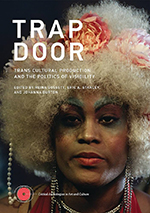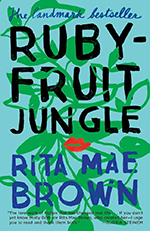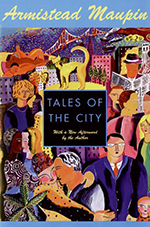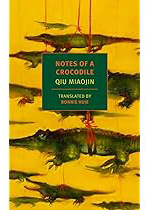June is here and Pride Month is upon us again! This is the month when we honor queer history and the Stonewall Uprising of 1969 in Manhattan, New York, that set an already-burgeoning gay rights activist movement into high gear. Here in Charlottesville, we get to celebrate Pride twice! Once in June and again in September, when our town and the University celebrate Pride with the full involvement of UVA students.
This month Reference Librarian Mandy Rizki is highlighting a handful of the many library resources that focus on LGBTQIA+ lives, experiences, and fields of scholarship.
“Trap Door: Trans Cultural Production and the Politics of Visibility” by Reina Gossett, Eric A. Stanley, and Johanna Burton (MIT Press, 2017)
 This collection was edited by three scholars working in trans studies: a professor and filmmaker, an activist and archivist, and a museum curator. Together, they created a book that thinks across the fields of art, archives, and theory to consider how visibility, or cultural presence and recognition, of certain minoritized groups is promoted as a ‘win’ for queer rights, while physical and legislative violence against trans people remains high. While that may sound complex, I’d encourage anyone interested in trans communities and rights to pick up this volume, as it’s full of beautiful, thoughtful, and thought-provoking photographs and artwork in addition to meaningful essays, conversations, and writing.
This collection was edited by three scholars working in trans studies: a professor and filmmaker, an activist and archivist, and a museum curator. Together, they created a book that thinks across the fields of art, archives, and theory to consider how visibility, or cultural presence and recognition, of certain minoritized groups is promoted as a ‘win’ for queer rights, while physical and legislative violence against trans people remains high. While that may sound complex, I’d encourage anyone interested in trans communities and rights to pick up this volume, as it’s full of beautiful, thoughtful, and thought-provoking photographs and artwork in addition to meaningful essays, conversations, and writing.
Social Justice Sexuality Data Set by Juan Battle, Antonio Pastrana, Jr, and Jessie Daniels
Understanding queer communities through qualitative research is an important part of the fight for LGBTQ+ rights, better funding for social support groups, and social sciences research. One way that researchers can support more just, qualitative research is by creating and using open data sets that focus on diverse populations. Open data are data sets that are available for download for free and can be used by anyone. The Social Justice Sexuality data set is focused on queer people of color and asks a wide range of questions related to community, health, economics, spirituality, and more. Created by researchers at the City University of New York, the data set has already supported the writing of nearly 40 academic articles. You can get help making, finding, and analyzing open data sets from our Research Data Services team (researchdataservices@virginia.edu).
Rita Mae Brown Papers and “Rubyfruit Jungle” (Daughters, Inc., 1973)
 Rita Mae Brown is the celebrated author of the foundational lesbian novel, “Rubyfruit Jungle” as well as the “Mrs. Murphy” detective series (you may remember Brown’s co-author, Sneaky Pie Brown, her cat!). We’re lucky to hold Brown’s papers within UVA’s Albert and Shirley Small Special Collections Library. Beyond her literary career, Brown participated in queer, lesbian, and women’s rights activism in New York and Washington, D.C. She wrote for political publications, co-founded radical feminist and lesbian action groups, participated in the National Organization for Women (NOW), and co-founded an experimental communal living collective. You can browse the finding aid to Brown’s collection and check out “Rubyfruit Jungle” or Brown’s other publications.
Rita Mae Brown is the celebrated author of the foundational lesbian novel, “Rubyfruit Jungle” as well as the “Mrs. Murphy” detective series (you may remember Brown’s co-author, Sneaky Pie Brown, her cat!). We’re lucky to hold Brown’s papers within UVA’s Albert and Shirley Small Special Collections Library. Beyond her literary career, Brown participated in queer, lesbian, and women’s rights activism in New York and Washington, D.C. She wrote for political publications, co-founded radical feminist and lesbian action groups, participated in the National Organization for Women (NOW), and co-founded an experimental communal living collective. You can browse the finding aid to Brown’s collection and check out “Rubyfruit Jungle” or Brown’s other publications.
“Tales of the City” by Armistead Maupin (Harper & Row, 1978)
 Between 1974 and 1984, Armistead Maupin published a serialized novel in the San Francisco Chronicle that drew readers into the beautiful, sprawling, bohemian world centered on 28 Barbary Lane and a cast of San Franciscan characters. These now beloved, classic novels were some of the first pieces of fiction writing that portrayed queer characters experiencing positive, loving, serious relationships – before this period, most queer fiction was full of angst, disappointment, violence, and addiction. Beginning with “Babycakes” (1985), Maupin’s fun, romping stories were also among the very earliest novels to discuss the HIV/AIDS epidemic or describe the massive impact the illness had on victims’ friends, communities, and entire cities. Find the entire “Tales of the City” series on the shelf in Shannon Library.
Between 1974 and 1984, Armistead Maupin published a serialized novel in the San Francisco Chronicle that drew readers into the beautiful, sprawling, bohemian world centered on 28 Barbary Lane and a cast of San Franciscan characters. These now beloved, classic novels were some of the first pieces of fiction writing that portrayed queer characters experiencing positive, loving, serious relationships – before this period, most queer fiction was full of angst, disappointment, violence, and addiction. Beginning with “Babycakes” (1985), Maupin’s fun, romping stories were also among the very earliest novels to discuss the HIV/AIDS epidemic or describe the massive impact the illness had on victims’ friends, communities, and entire cities. Find the entire “Tales of the City” series on the shelf in Shannon Library.
“Notes of a Crocodile” by Qiu Miao-jin, translated by Bonnie Huie (New York Review Books, 2017)
 A cult classic of Chinese literature, this episodic, sometimes epistolary novel is set in Taipei in the 1990s, and, like many coming-of-age novels, the characters are students at a prestigious university. While each of the broad cast of characters are charming, engaging, and fun, the novel itself is reflective, thoughtful, and poetic. The novel was first published in 1994 and sets its cast in the late 1980s, just after the end of 34 years of martial law (military rule) in Taiwan, when a new era of freedom, artistic creation, and political movements was nascent. “Notes of a Crocodile” leans into the complexities of living that new world, one where the depictions of ourselves – as individuals, as queer people – can be damaging as we struggle to find love and intimacy in our own lives. Qiu’s novel is set steadily in reality: both the sorrows and the joys, the suffering and the happiness are depicted, because we can’t have one without the other. Qiu moved to Paris in 1994 and died by suicide the following summer; her work remains both popular and widely read and taught in Taiwan and China. We also hold Qiu’s Letters from Montmartre in our collection.
A cult classic of Chinese literature, this episodic, sometimes epistolary novel is set in Taipei in the 1990s, and, like many coming-of-age novels, the characters are students at a prestigious university. While each of the broad cast of characters are charming, engaging, and fun, the novel itself is reflective, thoughtful, and poetic. The novel was first published in 1994 and sets its cast in the late 1980s, just after the end of 34 years of martial law (military rule) in Taiwan, when a new era of freedom, artistic creation, and political movements was nascent. “Notes of a Crocodile” leans into the complexities of living that new world, one where the depictions of ourselves – as individuals, as queer people – can be damaging as we struggle to find love and intimacy in our own lives. Qiu’s novel is set steadily in reality: both the sorrows and the joys, the suffering and the happiness are depicted, because we can’t have one without the other. Qiu moved to Paris in 1994 and died by suicide the following summer; her work remains both popular and widely read and taught in Taiwan and China. We also hold Qiu’s Letters from Montmartre in our collection.
